The perpetrator in blue held his ear, laughed at him, repeated “you want to go to France” and slapped him.
| 04.11.2022 | Dilofos(GR) to Kapikule (TR) | josoor | 41.6919001, 26.3778852 | Greece | Turkey | yes | yes | yes | yes | no | no | no | 10 - 50 | 76 | Afghanistan, Pakistan, Syria, Morocco, Algeria | detention, no translator present, denial of food/water, personal belongings taken | 34 | beating (with batons/hands/other), kicking, insulting, threatening with guns, forcing to undress, theft of personal belongings | 4 men in olive green uniform with logo on arm and police written above it; 2 men wearing deep blue uniform with police written on front and Greek writing on back; 1 white Nissan with blue stripe and police written on side; 1 Skoda car with blue stripe and police written on side; 2 men in black and yellow civilian jackets with blue jeans and white sneakers; 1 white unmarked Mercedes van license plate GR with letter and number after it; 9 men in sage green uniform, black boots and police written in yellow on left side of chest and yellow stripe on arm with logo beneath; 2 men in balaclavas and green civilian jacket speaking Syrian Arabic; 3 men in deep blue uniform with police written in white on chest and flag resembling Greece flag on arm; 4 men wearing balaclavas in civilian clothes, one was wearing Adidas brand; 2 men in black unmarked uniforms and balaclavas; 2 white unmarked Mercedes van; 1 black Toyota truck with camper; 3x men in military camouflage uniforms speaking Greek; 3 men in civilian clothes and balaclavas speaking Arabic; 2 blue rubber inflatable boat with white insides and paddles |
On Apr 11th, 2022, 76 people on the move (POM) were pushed back from Dilofos, Greece to Kapikule, Turkey. The respondent, a 22-year-old Moroccan man, was pushed back for the seventh time.
On April 5th at 7p.m. he and two other Moroccan men, aged 21 and 30, walked for two hours from Edirne to Bosna, Turkey, to reach the border fence between Turkey and Greece. They arrived at the border and crossed at about 9:30 p.m.
Immediately after crossing the border into Greece the transit group ran across the farmland adjacent to the border fences until they reached a paved road one kilometer away. They crossed the road and continued walking in the dark. At one point they passed an abandoned church and crossed over railroad tracks. For about five days they walked continuously day and night, only taking small cigarette breaks and sleeping for a couple hours at a time far away from any villages.
On April 11th at 7 a.m. the transit group were outside the city of Komotini, and wanted to buy some things to continue their journey. Knowing that their clothes were dirty and they didn’t want officers or people to know they were immigrants, they walked around the outskirts of the city looking for a store until an old man saw them and started yelling at them in Greek, recounted the respondent.
They started running into the city looking for a place to hide, but after five minutes a white Skoda car with a blue stripe and "police" written on the side and a logo marked on the car pulled in front of the group and forced them to stop. The respondent identified the car as being similar to the vehicle in Image 1. In this car were two men wearing deep blue uniforms with "police" written in front and Greek writing on back, described the respondent. About three minutes later a white Nissan with a blue stripe and "police" written on it and marked by a logo pulled up behind them carrying four men in olive green uniforms with police written in yellow and a logo on the arm. The respondent confirmed in Nissan matched the vehicle in Image 2, and the green uniforms of the officers matched the uniform in Image 3.
[caption id="attachment_20186" align="alignnone" width="600"]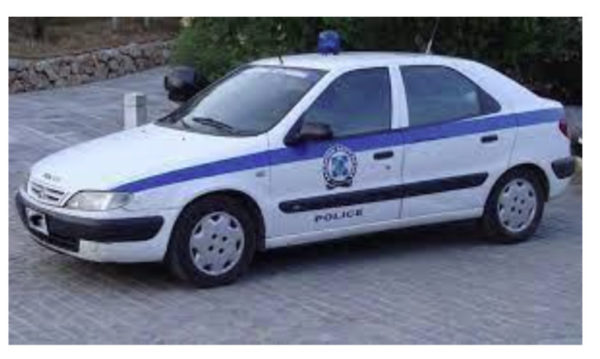 Image 1: Skoda Octavia Greek Police Car[/caption]
[caption id="attachment_20184" align="alignnone" width="600"]
Image 1: Skoda Octavia Greek Police Car[/caption]
[caption id="attachment_20184" align="alignnone" width="600"]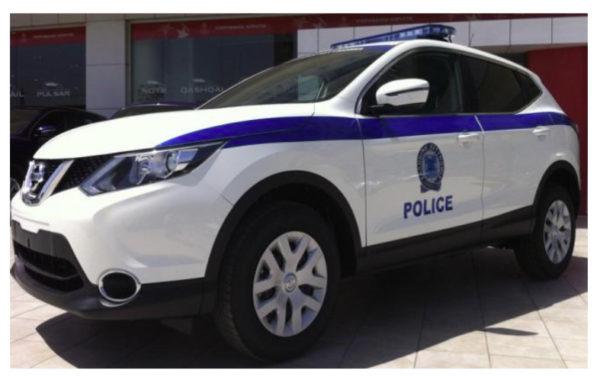 Image 2: Nissan Qashqai Greek Police Car (New as of March 2020)[/caption]
[caption id="attachment_20189" align="alignnone" width="600"]
Image 2: Nissan Qashqai Greek Police Car (New as of March 2020)[/caption]
[caption id="attachment_20189" align="alignnone" width="600"]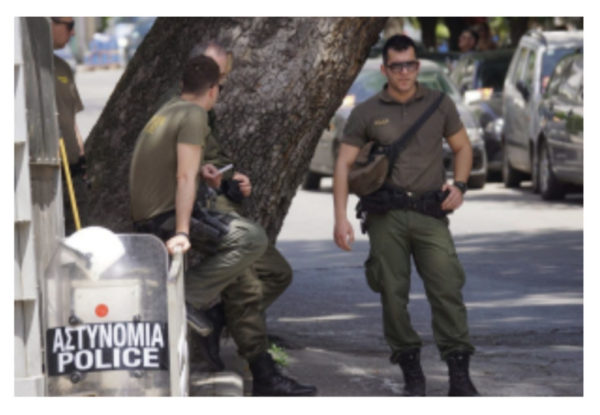 Image 3: ΑΣΤΥΝΟΜΙΑ police[/caption]
[caption id="attachment_20201" align="alignnone" width="600"]
Image 3: ΑΣΤΥΝΟΜΙΑ police[/caption]
[caption id="attachment_20201" align="alignnone" width="600"]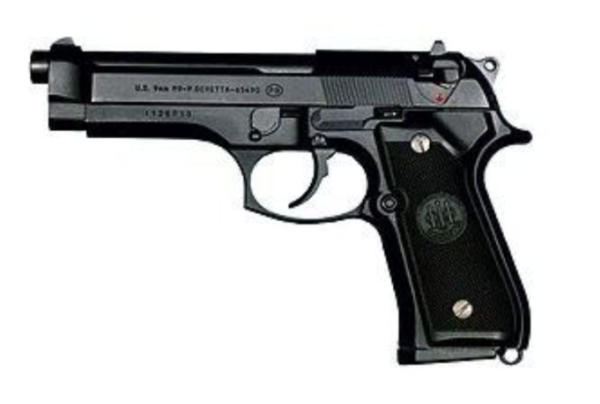 Image 4: Beretta M9[/caption]
After the second car arrived the two men in dark blue uniforms and one in olive green aimed their firearms at the group and told them to step away from the road, recalled the respondent. He also confirmed the firearm used by the officer resembled the one in Image 4.
According to the respondent, two uniformed men then started beating the group with plastic batons and kicking them even though there were citizens walking around and some even stopped to ask what was wrong with them. For about 30 minutes, the officers hit the respondent and his companions, and then took a break to make a phone call and smoke some cigarettes. In English, the men in blue asked them where they were from, how old they were, how long they had been walking and where they wanted to go. Reportedly, the respondent was the last to answer and when he did the men in blue held his ear, laughed at him, and repeated “you want to go to France” and slapped him. The respondent then pleaded with the men to "please let them go and they would leave Greek territory" to which the men kept repeating “yes, yes’ and talked and laughed with his friend in Greek and said “malaka”. At no point did the men check their documents.
About 30 minutes after being apprehended, a white unmarked Mercedes van with the license plate "GR" and letters and numbers after it came to collect the transit group. The respondent confirmed the vehicle was similar to the one in Image 5. Two men in black and yellow civilian jackets with blue jeans and white sneakers came with the van, recalled the respondent. According to him, one of the men looked like he was from Syria, but he only heard the men speaking Greek and they did not speak to the respondent. The transit group were loaded into the back of the van where they were locked in and not able to see outside, recounted the respondent. For two hours they were driven very fast on paved roads until they arrived at a detention site at around 10 a.m. After unloading the group, the van left the site.
[caption id="attachment_20250" align="alignnone" width="302"]
Image 4: Beretta M9[/caption]
After the second car arrived the two men in dark blue uniforms and one in olive green aimed their firearms at the group and told them to step away from the road, recalled the respondent. He also confirmed the firearm used by the officer resembled the one in Image 4.
According to the respondent, two uniformed men then started beating the group with plastic batons and kicking them even though there were citizens walking around and some even stopped to ask what was wrong with them. For about 30 minutes, the officers hit the respondent and his companions, and then took a break to make a phone call and smoke some cigarettes. In English, the men in blue asked them where they were from, how old they were, how long they had been walking and where they wanted to go. Reportedly, the respondent was the last to answer and when he did the men in blue held his ear, laughed at him, and repeated “you want to go to France” and slapped him. The respondent then pleaded with the men to "please let them go and they would leave Greek territory" to which the men kept repeating “yes, yes’ and talked and laughed with his friend in Greek and said “malaka”. At no point did the men check their documents.
About 30 minutes after being apprehended, a white unmarked Mercedes van with the license plate "GR" and letters and numbers after it came to collect the transit group. The respondent confirmed the vehicle was similar to the one in Image 5. Two men in black and yellow civilian jackets with blue jeans and white sneakers came with the van, recalled the respondent. According to him, one of the men looked like he was from Syria, but he only heard the men speaking Greek and they did not speak to the respondent. The transit group were loaded into the back of the van where they were locked in and not able to see outside, recounted the respondent. For two hours they were driven very fast on paved roads until they arrived at a detention site at around 10 a.m. After unloading the group, the van left the site.
[caption id="attachment_20250" align="alignnone" width="302"]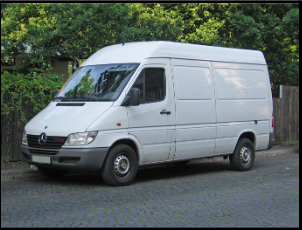 Image 5: White unmarked van - often Mercedes or Renault[/caption]
[caption id="attachment_20255" align="alignnone" width="517"]
Image 5: White unmarked van - often Mercedes or Renault[/caption]
[caption id="attachment_20255" align="alignnone" width="517"]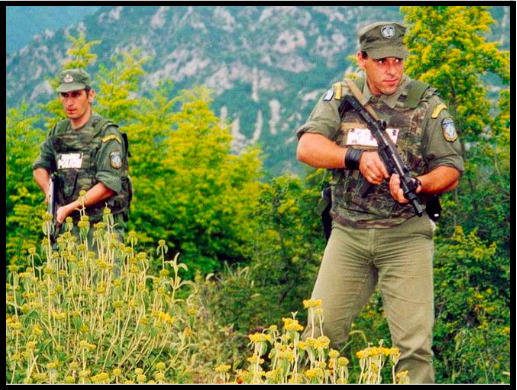 Image 6: Green-uniformed Greek border guards[/caption]
The respondent described the detention site as having old walls, a small yard in the front and a hallway leading to the cells. The area was surrounded by a fence and the building looked abandoned on the first floor, illustrated the respondent. There were a few other caravans and citizen houses nearby, and a flag resembling the Greek flag was on the fence in front of the detention building. There were nine men in sage green uniforms with black boots and "police" written in yellow on the left side of the chest with a logo and yellow stripe on the shoulder, confirmed by the respondent to resemble Image 6.
Three men took the transit group to be searched. First, they were reportedly forced to leave their backpacks in a pile with many other backpacks, and then they had to stand by a wall in the yard from where they could see a citizen’s house 100 meters across the road. They were then asked to take off all of their clothes and were searched by the uniformed men for about 15 minutes. The men did not return their backpacks, shoes, jackets, phones or money, recounted the respondent.
Afterwards, at around 11a.m. they were taken inside to a five by three meter cell where 65 other people, aged 10 to 50, from Syria, Morocco, Algeria, Afghanistan and Pakistan, were also being held. There were five women and 10 boys under 17 present in the group. The ground of the cell was dirty with mud and there were four bunk beds without mattresses or covers, recounted the respondent. On the old walls there were names written and the cell smelled from the dirty toilet inside of the cell. In the hallway there were two cameras and an office at the end of the hall, described the respondent. After less than an hour, the uniformed men brought another group of Syrian and Algerian men into the cell, making the total of people being held, 76.
For approximately 10 hours, everyone waited at the detention site. They were not offered food or water and there was no translator present. After 10 hours, two men wearing balaclavas and green civilian jackets and pants came to open the cell door. They spoke in Syrian Arabic and said “families stay together”, reported the respondent. One of these men reportedly had a branch which he used to hit everyone on the back with as they were coming out from the cell and told them to run fast. The men did not beat the women, but they did hit the minors, recounted the respondent. The respondent and his friends tried to stay together since this was the first time one of his friends had experienced being pushed back.
Outside the cell there were another nine men: three in deep blue uniforms with "police" written in white on their chest and a flag like the Greek flag on the arm; four men wearing balaclavas holding branches and wearing civilian sports pants and jackets, one which was Adidas brand; two men wearing black unmarked uniforms with balaclavas. The respondent further described that outside the detention site were two unmarked white Mercedes vans without license plates on the back and one black Toyota pickup truck parked, into which they loaded all 76 individuals being held in the detention site.
The respondent and his friends were placed in a van with 32 other people. It was very crowded and they tried to give space to women and kids, recalled the respondent. Everyone kept colliding with each other as the uniformed men drove fast and recklessly for about 10 minutes on an unpaved road with many potholes. The van arrived at a big forest on the side of the Evros river around 9 p.m. The respondent could see light from the Turkish territory and could see trucks parked on the Turkish side. Once the respondent saw light from the Mosque across the river he knew they were near Edirne because he had been pushed back before. He noted that he was happy because he would not have to walk long to reach Edirne. The other white Mercedes van was also present at the pushback location.
At the pushback site there were reportedly six more uniformed men who joined the seven that arrived with the vans and the black truck - three in green camouflage uniforms similar to the Greek military, all carrying big firearms, and three wearing civilian clothes with balaclavas holding branches. The men in camouflage were speaking Greek and some of the men in civilian clothes were speaking Syrian Arabic, described the respondent. Two of the men in black uniforms were controlling the line and two of the men in civilian clothes were searching everyone. The respondent described how the men told everyone to give them what they were hiding and ordered everyone to stay in line and keep silent. They searched everyone one by one and hit each person over the head and shoulder with a branch, explained the respondent. Since they had taken everything except a shirt and pants from the respondent in detention, there was nothing left to take.
According to the respondent, two three by one meter blue rubber inflatable boats with white insides were ready at the water. Reportedly, nine people-on-the-move plus two drivers wearing civilian clothes and balaclavas were put in the boats and paddled to the Turkish side. The respondent was in the middle of the line so he waited 30 minutes before he was loaded into a boat.
At approximately 10 p.m. on April 11th the respondent was pushed back across the river by boat.
The respondent reported that the boat was unstable from too much weight and water got inside of it. They were taken to the middle of the river and told to get out and swim to the Turkish side.
Once on Turkish soil, there was a small forest and the respondent went through a small fence to reach the road. The respondent recounted that there was a truck parked on the road and the driver started chasing them so they ran down the road to not be caught by the Turkish police. On the main road the respondent knew that they were in Kapikule, Turkey, because he had been pushed back there before and knew they could walk back to Erdine.
Image 6: Green-uniformed Greek border guards[/caption]
The respondent described the detention site as having old walls, a small yard in the front and a hallway leading to the cells. The area was surrounded by a fence and the building looked abandoned on the first floor, illustrated the respondent. There were a few other caravans and citizen houses nearby, and a flag resembling the Greek flag was on the fence in front of the detention building. There were nine men in sage green uniforms with black boots and "police" written in yellow on the left side of the chest with a logo and yellow stripe on the shoulder, confirmed by the respondent to resemble Image 6.
Three men took the transit group to be searched. First, they were reportedly forced to leave their backpacks in a pile with many other backpacks, and then they had to stand by a wall in the yard from where they could see a citizen’s house 100 meters across the road. They were then asked to take off all of their clothes and were searched by the uniformed men for about 15 minutes. The men did not return their backpacks, shoes, jackets, phones or money, recounted the respondent.
Afterwards, at around 11a.m. they were taken inside to a five by three meter cell where 65 other people, aged 10 to 50, from Syria, Morocco, Algeria, Afghanistan and Pakistan, were also being held. There were five women and 10 boys under 17 present in the group. The ground of the cell was dirty with mud and there were four bunk beds without mattresses or covers, recounted the respondent. On the old walls there were names written and the cell smelled from the dirty toilet inside of the cell. In the hallway there were two cameras and an office at the end of the hall, described the respondent. After less than an hour, the uniformed men brought another group of Syrian and Algerian men into the cell, making the total of people being held, 76.
For approximately 10 hours, everyone waited at the detention site. They were not offered food or water and there was no translator present. After 10 hours, two men wearing balaclavas and green civilian jackets and pants came to open the cell door. They spoke in Syrian Arabic and said “families stay together”, reported the respondent. One of these men reportedly had a branch which he used to hit everyone on the back with as they were coming out from the cell and told them to run fast. The men did not beat the women, but they did hit the minors, recounted the respondent. The respondent and his friends tried to stay together since this was the first time one of his friends had experienced being pushed back.
Outside the cell there were another nine men: three in deep blue uniforms with "police" written in white on their chest and a flag like the Greek flag on the arm; four men wearing balaclavas holding branches and wearing civilian sports pants and jackets, one which was Adidas brand; two men wearing black unmarked uniforms with balaclavas. The respondent further described that outside the detention site were two unmarked white Mercedes vans without license plates on the back and one black Toyota pickup truck parked, into which they loaded all 76 individuals being held in the detention site.
The respondent and his friends were placed in a van with 32 other people. It was very crowded and they tried to give space to women and kids, recalled the respondent. Everyone kept colliding with each other as the uniformed men drove fast and recklessly for about 10 minutes on an unpaved road with many potholes. The van arrived at a big forest on the side of the Evros river around 9 p.m. The respondent could see light from the Turkish territory and could see trucks parked on the Turkish side. Once the respondent saw light from the Mosque across the river he knew they were near Edirne because he had been pushed back before. He noted that he was happy because he would not have to walk long to reach Edirne. The other white Mercedes van was also present at the pushback location.
At the pushback site there were reportedly six more uniformed men who joined the seven that arrived with the vans and the black truck - three in green camouflage uniforms similar to the Greek military, all carrying big firearms, and three wearing civilian clothes with balaclavas holding branches. The men in camouflage were speaking Greek and some of the men in civilian clothes were speaking Syrian Arabic, described the respondent. Two of the men in black uniforms were controlling the line and two of the men in civilian clothes were searching everyone. The respondent described how the men told everyone to give them what they were hiding and ordered everyone to stay in line and keep silent. They searched everyone one by one and hit each person over the head and shoulder with a branch, explained the respondent. Since they had taken everything except a shirt and pants from the respondent in detention, there was nothing left to take.
According to the respondent, two three by one meter blue rubber inflatable boats with white insides were ready at the water. Reportedly, nine people-on-the-move plus two drivers wearing civilian clothes and balaclavas were put in the boats and paddled to the Turkish side. The respondent was in the middle of the line so he waited 30 minutes before he was loaded into a boat.
At approximately 10 p.m. on April 11th the respondent was pushed back across the river by boat.
The respondent reported that the boat was unstable from too much weight and water got inside of it. They were taken to the middle of the river and told to get out and swim to the Turkish side.
Once on Turkish soil, there was a small forest and the respondent went through a small fence to reach the road. The respondent recounted that there was a truck parked on the road and the driver started chasing them so they ran down the road to not be caught by the Turkish police. On the main road the respondent knew that they were in Kapikule, Turkey, because he had been pushed back there before and knew they could walk back to Erdine.
